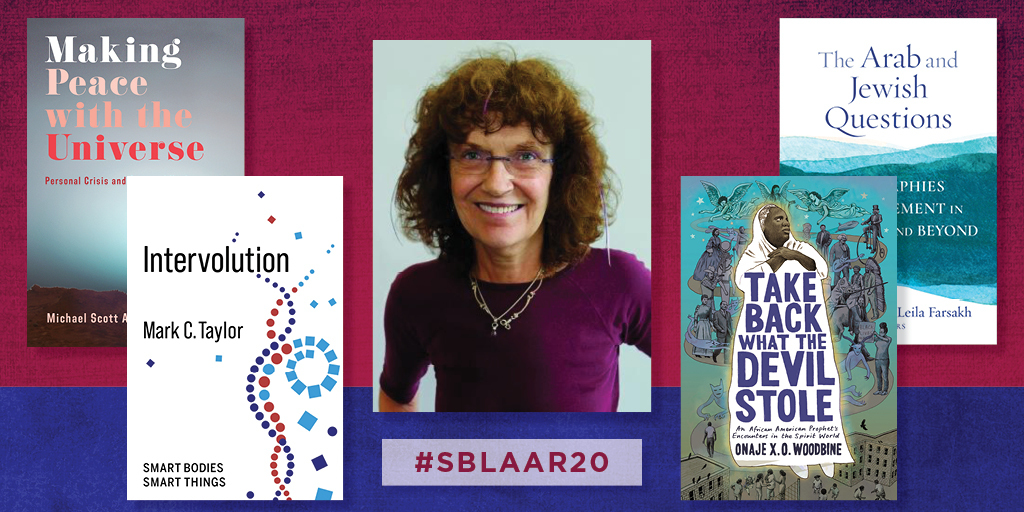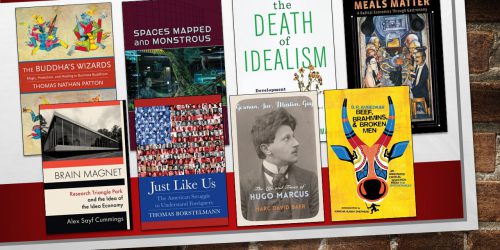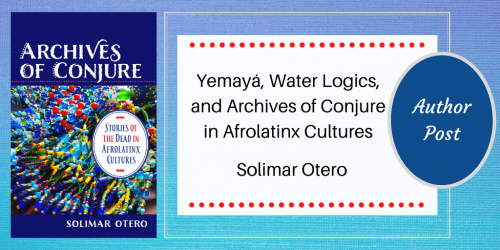Take a Tour of Our AAR Virtual Exhibit with Wendy Lochner

Hi! I’m Wendy Lochner, the religion editor at Columbia University Press. Since the coronavirus pandemic has canceled fall conferences—SBL/AAR included—we are mounting virtual book exhibits on our blog to accompany our virtual booth. I will miss seeing so many friends in person but will see some of you on Zoom—I hope we all last though the long duration of this virtual meeting!—and I’m very excited to share so many new Columbia books with you. (There are even more in the Columbia University Press religion catalog for 2021). The titles featured here, which span subjects from Buddhism to American religion to philosophy of religion, Islam, religion and literature, and more, reflect the interdisciplinary and global approach of our list and exemplify the innovative and field-changing scholarship that we value.
I’d like to highlight a few titles that are especially compelling for a broad audience. Take Back What the Devil Stole by Onaje Woodbine is an extraordinary portrait of an African American prophet and warrior whose gripping experiences in the spirit world reveal how one Black woman in contemporary America has reclaimed her power in the face of a lifetime of racial injustice. Solimar Otero’s Archives of Conjure examines the stories that the dead tell in Afrolatinx cultures and how they shape experiences of gender, sexuality, and race.
Making Peace with the Universe by Michael Alexander narrates poignant testimonies of personal crisis and spiritual healing drawn from the world’s religious traditions, along with his own account. A Partial Enlightenment by Avram Alpert reads modernist literature from Asia and the West alongside his own experience to find a way to understand Buddhism in the contemporary world.
We are proud to introduce three entries in our new and innovative interdisciplinary No Limits series, edited by Costica Bradatan. Mark Taylor’s Intervolution reveals that we are already cyborgs, integral cogs in what will become a superorganism of bodies and things. Touch by Richard Kearney argues that touch is our most primordial sense, foundational to our individual and common selves. Aimlessness by Tom Lutz asks us to give up our striving for achievement and instead become sidetracked, get lost, and daydream.
Our list, as always, offers many exciting new titles in global Buddhisms. To mention just a few of them, Wisdom as a Way of Life is Steven Collins’s final work, a powerful argument that Theravāda Buddhism offers insights into the self and how to act that are relevant today. Steven Heine’s Readings of Dōgen’s “Treasury of the True Dharma Eye” offers a textual, historical, literary, and philosophical examination of this Zen Buddhist classic. Beef, Brahmins, and Broken Men is an annotated critical section of B. R. Ambedkar’s classic The Untouchables, which locates the origins of the Dalit caste in Indian Buddhism. And Nicole Willock’s Lineages of the Literary tells the story of three Tibetan Buddhist scholars who kept their tradition alive in twentieth-century China.
Among our books on the Islamic world, Bashir Bashir’s and Leila Farsakh’s collection The Arab and Jewish Questions examines how European antisemitism and Israeli Islamophobia resulted in the historical entanglement of Jewish and Palestinian struggles for self-determination that continues unabated today. Modern Sufis and the State, edited by Katherine Pratt Ewing and Rosemary R. Corbett, exposes the myth of Sufi unworldliness, demonstrating the role of the tradition in political violence from the colonial period to the present. And Anna M. Gade’s Muslim Environmentalisms shows how Muslim scripture, jurisprudence, science, art, and social and political engagement have foregrounded the environment as an ethical idea.
Last, no religion catalog would be complete without mention of religion and politics in America. At Home and Abroad, edited by Elizabeth Shakman Hurd and Winnifred Fallers Sullivan, provides a new theoretical approach to the politics of religion, interrogating American religious exceptionalism and illuminating imperial dynamics beyond the United States.
Please check in each day for brand-new author blogs and videos! And for the full duration of the virtual conference, you can use the code AAR20 at checkout from our website for a 20 percent discount on any of our conference titles.
Thanks so much for joining us!
Wendy
Categories:American Academy of ReligionBook ExcerptEventsPhilosophyReligionVirtual Exhibits
Tags:A Partial EnlightenmentAimlessnessAlex GeorgeAmerican Academy of ReligionAnna M. GadeArchives of ConjureAt Home and AbroadAvram AlpertB.R. AmbedkarBashir BashirBeef Brahmins and Broken MenElizabeth Shakman HurdIntervolutionJustin McDanielKatherine Pratt EwingLeila FarsakhLineages of the LiteraryMaking Peace with the UniverseMark C. TaylorMichael Scott AlexanderModern Sufis and the StateMuslim EnvironmentalismsNicole WillockNo LimitsOnaje X. O. WoodbineReadings of Dōgen's Treasury of the True Dharma EyeRichard KearneyRosemary R. CorbettS. AnandSolimar OteroSteven CollinsSteven HeineTake Back What the Devil StoleThe Arab and Jewish QuestionsTom LutzTouchWinnifred Fallers SullivanWisdom as a Way of Life







